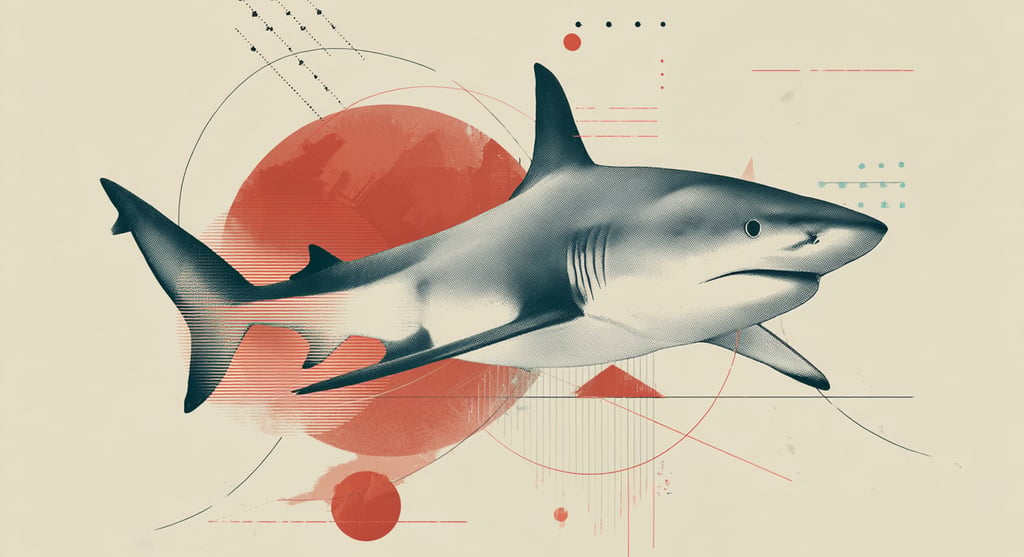AND A LITTLE DEEPER
WHEN THE MARINE'S STABILITY IS SHAKEN
Birte Brunner
12/5/20252 min read


The oceans have always been our silent ally. They breathe for us, store our heat and bind our CO₂. They are home to the oldest creatures on Earth and feed millions of people. And yet we treat them as if they were inexhaustible – a shelf full of resources that replenishes itself.
But the shelves are emptier than ever. Overfishing is eating away at diversity before we even understand it. Entire stocks are collapsing because we are taking faster than nature can give. What remains is emptiness – invisible beneath the surface, but loud in its consequences: coastal communities are losing their livelihoods, food chains are collapsing, and with them the balance of entire ecosystems.
This is particularly noticeable at the top of the food pyramid: the sharks. They are not monsters, but the architects of marine stability. Without them, populations falter, algae bloom, reefs die. Since 1970, their numbers have plummeted by more than 70 per cent. They die for soups, for fins, for markets that treat them like commodities – yet they are the silent guardians of our oceans.
And while we fish, destroy and pollute, climate change is putting further pressure on them. Warmer seas are forcing species out of their habitats, corals are bleaching, and increasingly acidic water is even eating away at sharks' teeth.
Entire habitats could disappear by the end of the century.
But we are not only perpetrators, we are also observers. Social media turns every encounter with a shark, every wave of plastic waste, into a viral image. It stirs our conscience, but too often it fades away in the stream of news, supplanted by the next headline. At the same time, the world's population is growing, the demand for fish is increasing, and industrial fishing is pushing boundaries that have long been exceeded.
The question is no longer whether we need to act. The question is whether we will do so in time. We can expand protected areas, promote sustainable fishing, and use technologies that make illegal fishing fleets visible. We can consume more consciously, put pressure on politicians, and tell stories that not only feed fears but also empathy and the will to act.
Because in the end, the ocean is not a distant, blue space. It is part of us, and we are part of it. When it dies, it is not just a habitat that dies – it is part of our own future. The oceans do not need heroes. They need people who understand that their fate and our fate are inextricably linked.
WWF: Sharks are key to the health of our oceans and climate (2024)
The Guardian: Sharks deserting coral reefs as oceans heat up (2024); Ocean acidification erodes sharks’ teeth(2025)
Greenpeace Report (2025): Endangered sharks killed at alarming levels in Pacific
Our World in Data: Overfishing and the state of global fish stocks
